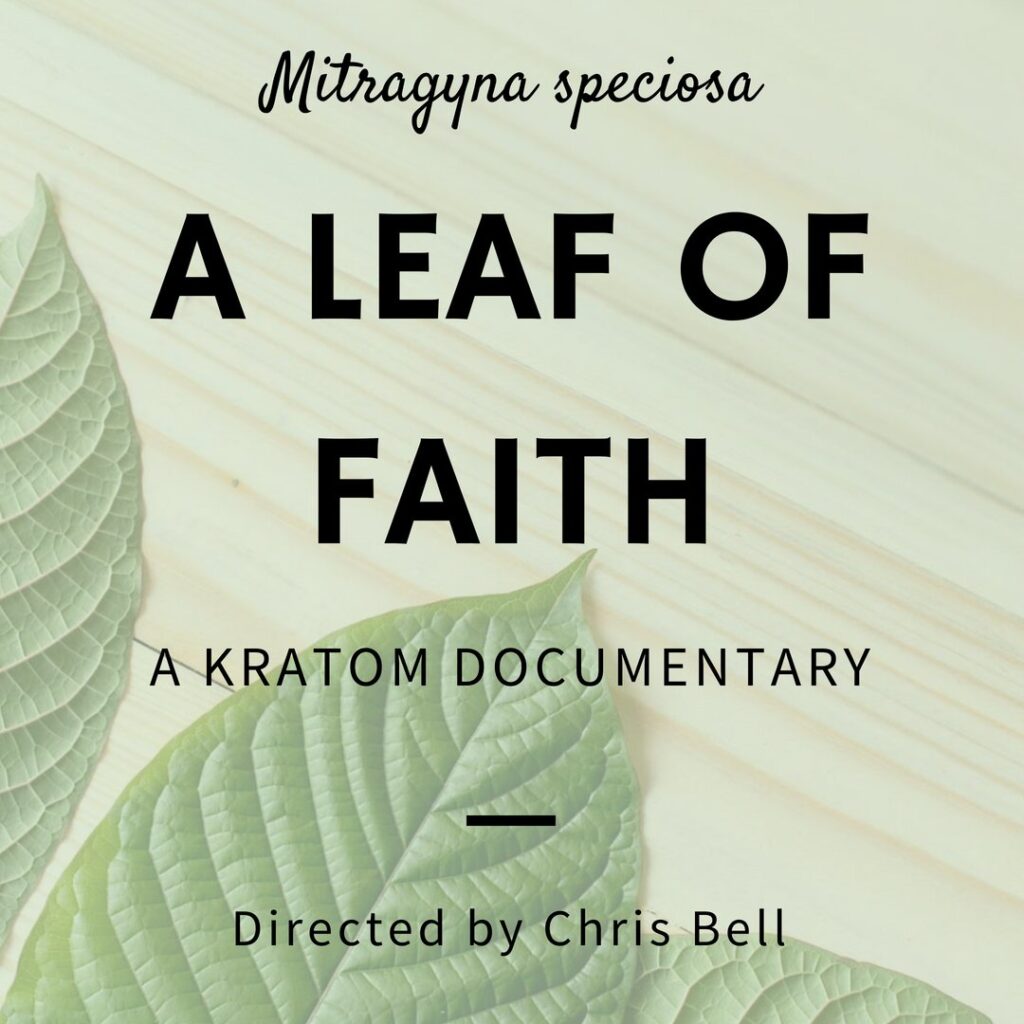Users Who Spiked

A LEAF OF FAITH FILM REVIEW
Private Notes
Private Notes
Notes
Although it was released in May of 2018, A Leaf of Faith remains the only major documentary film about kratom. In line with films like Sicko, The Crime of the Century, and Pharma Bro, Chris Bell (Trophy Kids, Bigger Stronger Faster) presents yet another reason to hate Big Pharma. But it's not just about problems, it's about solutions. One solution, in particular, is an herbal supplement from Southeast Asia called kratom (www.bogokratom.com/what-is-kratom/). Some say it's a dangerous drug and others say it's a lifesaver. What does Chris Bell have to say about it?
A Leaf of Faith isn't a perfect film, but it brings to light a topic that most people only became aware of through the media and the DEA's slander of the substance in 2016. That's when the Drug Enforcement Agency was planning to put kratom on the list of Schedule 1 drugs, a list that includes heroin, LSD, and ecstasy. It also includes marijuana. Why? The DEA claims that these substances have, "no currently accepted medical use and a high potential for abuse." Despite being a catchy rhyme, most people would argue that it certainly does not describe cannabis. Chris Bell presents a case that it's doesn't describe kratom either.
Bell makes an effort to present a balanced argument on the topic. He mostly succeeds, with a few interesting flaws along the way. Get ready for a deep dive into A Leaf of Faith.
In the documentary, advocates of kratom are fans of the herbal supplement as a painkiller and treatment for opioid substance abuse disorder. Chris Bell comes at the topic from the perspective of someone who's had issues with abuse in the past and is investigating the potential for kratom as a treatment. He interviews politicians, distributors, scientists, and users of kratom on both sides of the argument.
One standout opponent in the film is Rep. Kristin Jacobs (FL). During her time as a State Representative and until her death in 2020 of cancer, Jacobs tried to convince the DEA to ban kratom as a schedule 1 narcotic. Jacobs's resume is an impressive one, especially when it comes to her work with climate change politics. However, she comes off as unbalanced in her interview with Bell. Her obvious animosity toward kratom only seems supported by weak arguments that she isn't able to hold up in the face of even the mildest challenge. It's a side of her that her Wikipedia entry won't show, but is echoed in an article by HuffPost titled, "Florida Lawmaker Invokes Hitler in Meltdown Over Her Proposed Kratom Ban."
The most convincing arguments in favor of kratom come from Dr. Chris McCurdy, a chemist in the University of Florida's Medicinal Chemistry Department. While he's certainly not touting kratom as a miracle cure, he does see a lot of potential there. He would know. Searches on ResearchGate and Google Scholar show that he's published multiple peer-reviewed scientific papers on the topic. If kratom were restricted as a schedule 1 drug, it would make his and other researchers' work much more difficult. But it's impossible to know if any substance has medical use without that research.
To switch things up, the film features two more scientific "experts" that don't hold up quite as well as advocates or opponents of kratom. One is Dr. Phillip Schoenwetter. He's a practicing family physician in San Pedro, California. He's got plenty of great things to say about kratom, but it's hard to take him seriously as an expert. For one, he's a family doctor, not a chemist or researcher, and he's never published any scientific research on the topic. For another, he's the founder of Schoenwetter Supplements, LLC, a company that distributes nutritional supplements.
The other person is Dr. Deborah Mash, a neurologist and pharmacologist at the University of Miami School of Medicine. She researches a plant from Africa called ibogaine, that's another potential solution to opioid substance abuse disorder. She, however, thinks that kratom is a gateway to opioid addiction. "Do we want another addicting opiate on the planet?" she asks. She doesn't seem to have done any research on kratom herself, but ibogaine could be seen as a potential competitor. To her credit, though, is her is pro-regulation stance and admission that we don't know enough about kratom yet.
It's not just scientific experts and politicians Bell interviews about kratom. Most of his conversations yield anecdotal evidence of kratom's benefits from former opioid abusers and military veterans. There's so much anecdotal evidence that it swayed the DEA from their decision to ban kratom in 2016. Who would know better than the people who have been taking it for years? Bell speaks with many of them at the September 2016 pro-kratom march on DC. Add to that celebrity advocates like Joe Rogan and "Liberal Redneck" comedian Trae Crowder, and you have a pretty persuasive argument for at least giving kratom a closer look.
It's less critical to the film's arguments but still bears mentioning that the animation in this movie is really, really bad. It reflects the low production value of the film (as do the warped television replay images) but does a remarkably good job of breaking down the film's main concepts. Just because something is low-budget, doesn't make it invalid, but it is cringe-worthy.
From the perspective of someone curious about trying kratom, A Leaf of Faith has a lot of useful information presented in a way that's easy to understand. It's also great if you're trying to wrap your head around the legal and PR battles kratom is facing. But no one source should be the end-all, be-all decision-maker, especially when it comes to medical treatments or procedures. The film is currently behind a paywall but is well worth the small rental fee charged by Amazon Prime or YouTube.





































